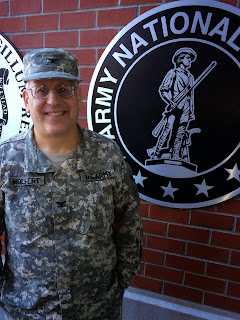 |
| Weymouth Dentist Dr. Richard
Wolfert, AKA The Toothboss, with Dorothy VanLeesten of Plymouth. |
Donated Dental Services is a national non-profit organization comprised of nearly 20,000 dental professionals who donate dental services for people with disabilities or who are elderly or medically at-risk. We have been part of the DDS network.
The patients referred by DDS not only can’t afford help, but have other conditions that make their lives even more difficult beyond needing dental work. Fixing their teeth may not solve those problems, but it does give them one thing to smile about.
Ms. VanLeesten came to us missing two front teeth. Working with Dr. Lawrence Juvet, a South Weymouth oral surgeon, and Bob Achorn of Achorn Dental Lab, also in Weymouth, we were able to place removable partial dentures to replace her missing teeth. In the process, the dental team found her smile.
“I can’t stop smiling,” said VanLeesten. “I can’t thank Dr. Wolfert, Dr. Juvet and Mr. Achorn enough.”
DDS is the flagship program for the Dental Lifeline Network, a
national nonprofit founded in 1974,
that provides access to dental care and education for people who cannot afford
it and: have a permanent
disability; are elderly (age 65 or older); or are medically fragile. In fact,
since 1985, when DDS launched, more than 120,000 vulnerable people have
received more than $250 million worth of dental services for seriously
neglected dental diseases. The Toothboss is the sole provider of DDS services
on the South Shore.
If you or somebody you know
is a vulnerable person in need of dental care, please visit DDS's Dental
Lifeline at http://www.dentallifeline.org or by calling
888.471.6334.



